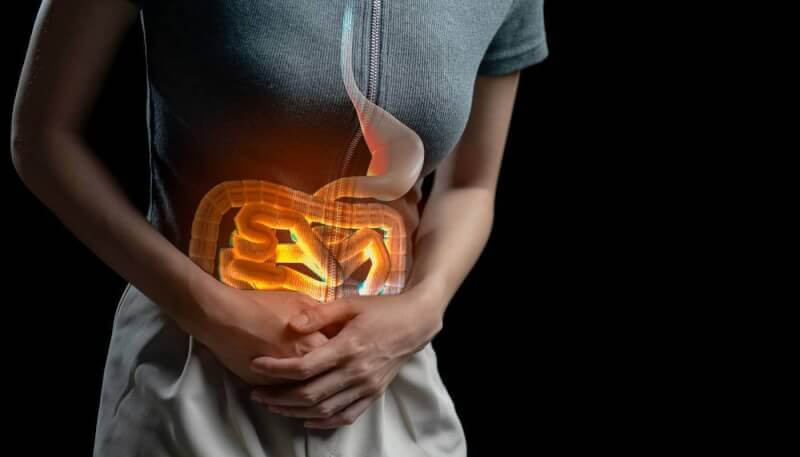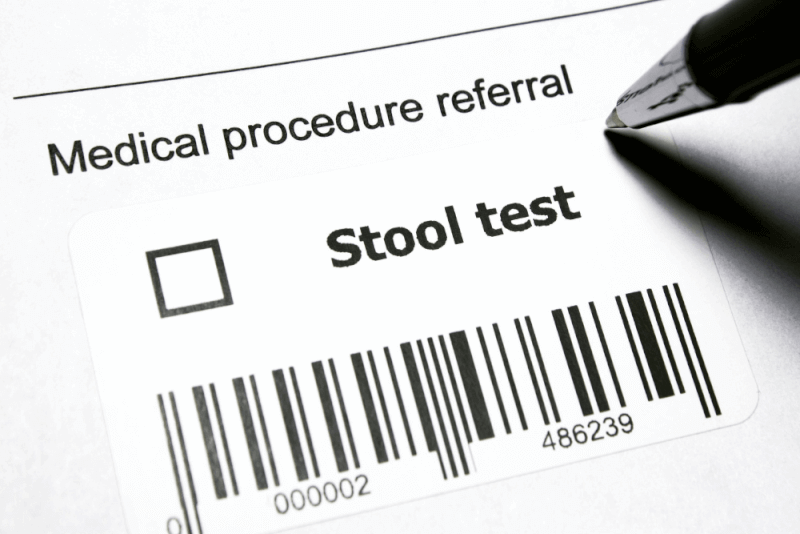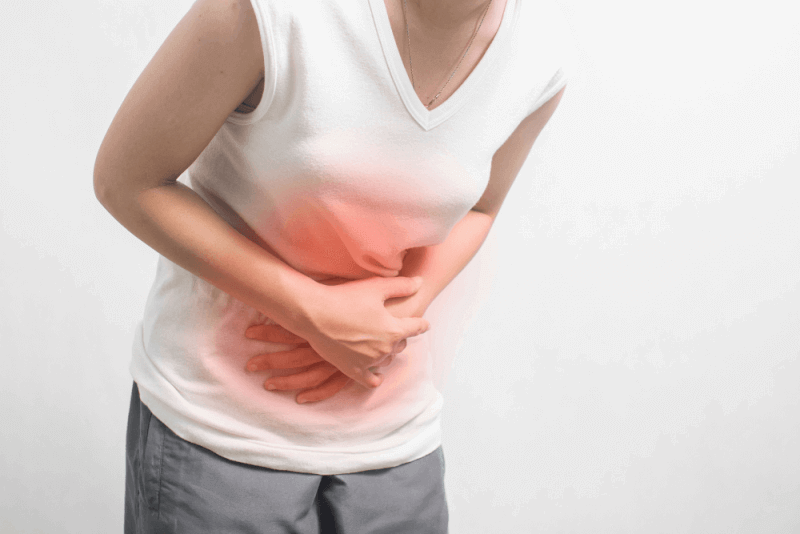30-Second Summary
- Constipation is defined as having fewer than three bowel movements per week.
- Common symptoms include hard stools, difficulty passing stools, abdominal pain, and bloating.
- Treatment usually involves lifestyle changes such as drinking plenty of water, eating fiber-rich foods, and regular exercise.
- It is not a serious medical issue but can negatively affect quality of life.
What is Constipation?
Constipation can fundamentally be defined as infrequent or less frequent bowel movements. Also known as constipation, it is a condition that almost everyone experiences at least once in their life.
While not considered a serious health problem, it can make patients feel uncomfortable. On the other hand, the normal cycle of people's bowel movements varies. Some people may go to the bathroom 2 or more times a day, while others may go only once a week and this can be considered normal.
On the other hand, not going to the toilet for more than 3 days can cause problems. This is because the stool becomes harder after the third day, making it even more difficult to pass. Therefore, having fewer than three bowel movements per week is considered constipation.
What are the Symptoms of Constipation?
The symptoms of constipation can be seen in many ways. Among the common symptoms are:
- Low frequency of bowel movements,
- Difficulty while defecating,
- A feeling that the bowels are not completely emptied,
- Hard stools,
- Very small stools,
- Abdominal bloating,
- A feeling of having to press on the abdomen to empty the bowels,
- A sensation of needing to use the fingers to help,
On the other hand, in some cases, patients should visit a doctor as soon as possible. These symptoms include:
- Sudden onset of constipation
- Sudden cramps
- Complete inability to pass stools
- Inability to pass gas
On the other hand, if constipation starts newly or if measures taken for constipation are not sufficient and the following symptoms are present, it is necessary to consult a doctor.
- Blood in the stool
- Involuntary weight loss
- Painful bowel movements
- Constipation lasting longer than two weeks
- Significant changes in the color, size, and shape of the stool
Psychological Symptoms of Constipation
Stress can disrupt the intestines and tense the muscles, resulting in more severe constipation. This condition, also referred to as emotional constipation, arises from the accumulation of emotions or feelings. It particularly affects women more and occurs in situations where emotions and needs cannot be verbally expressed. Symptoms caused by emotional constipation include:
- Headaches
- A feeling of numbness
- Anxiety
- Panic attacks
- Sleeplessness or difficulty sleeping
- Difficulty connecting with others
- Inappropriate emotional responses
- Depression
- Isolation
- Stomach and gastric issues
- Overeating
What Causes Constipation?
The primary cause of constipation is usually lifestyle. Changes in diet or exercise in daily life are the biggest factors causing constipation. On the other hand, not having enough fiber and water in one's diet can also cause constipation. Lack of physical activity is another lifestyle factor that can trigger constipation.
Continually delaying the need to use the toilet is also among the causes of constipation. Moreover, undergoing a stressful period can also inhibit bowel movements.
Constipation can also occur due to the use of certain medications. These include primarily laxatives. Other medications such as iron supplements, antidepressants, strong pain relievers, and antacids containing calcium or aluminum can cause constipation.
Other factors causing constipation include pregnancy, irritable bowel syndrome, eating disorders, problems with nerves and muscles in the digestive system, Parkinson's disease, colon cancer, multiple sclerosis, and thyroid diseases.
The Harm of Constipation
The complications caused by constipation vary depending on its severity and the underlying cause. Common complications of constipation include:
- Discomfort in the abdomen
- Abdominal cramps
- Decreased quality of life
- Hemorrhoids
- Anal fissures
- Damage to pelvic floor muscles
- Fecal incontinence
- Urinary retention
- Stercoral perforation
- Rectal prolapse
- Volvulus
- Anal fistula
Constipation in Pregnancy
In addition to lifestyle changes during pregnancy, hormonal changes can also cause constipation. Additionally, the use of iron supplements during this period is one of the causes of constipation.
Irregular eating habits and particularly poor diet are among the leading causes of constipation in pregnant women. Weight gain and reduced activity during pregnancy also contribute to constipation.
Constipation in Babies
There are many causes of constipation in babies. Structural abnormalities are among the primary reasons. Excessive milk consumption can also result in constipation. Constant feeding of solid foods can also cause constipation in babies, as can psychological problems.
What Are the Treatment Methods for Constipation?
The treatment of constipation generally involves lifestyle changes that can easily resolve the issue without the need for prescription medications. These lifestyle changes include a diet richer in fiber, increased water intake, and exercise.
On the other hand, certain foods can help increase bowel movements. These include dried fruits like figs and apricots, beets, celery, leeks, legumes, avocados, apples, grapes, white meat, fish, thyme, and olive oil.
Patients also need to adjust their toilet habits. They should not ignore the urge to go to the toilet. In addition, they should ensure they have uninterrupted and stress-free bathroom visits.
Laxatives are among the medications that can be used for constipation. However, it's important to verify the necessity of using such medications before opting for this quickest solution. A doctor's consultation is required for using this medication.
If constipation persists, then it is necessary to consult a doctor, as other underlying diseases that cause constipation may need to be ruled out.
Foods Good for Constipation
Eating food groups that are beneficial for constipation is one of the first preferred methods in the treatment of constipation.
Water
Water is one of the best substances for maintaining regular bowel movements. To ensure regularity, it is necessary to consume 2 liters of water daily, excluding tea, coffee, or fruit juices. This not only keeps the bowels functioning regularly but also softens the stool.
Fiber-Rich Vegetables
One of the most effective methods to alleviate constipation is the consumption of fibrous foods. Thus, it is the second recommended suggestion for constipation treatment. Including fiber-rich foods in meals can prevent constipation. These foods include green leafy vegetables, Brussels sprouts, artichokes, cabbage, broccoli, and leeks.
Fruits
Fruits are the third recommended food group for constipation treatment. It is necessary to choose fruits that are high in fiber, such as peaches, blackberries, apples, pineapples, pears, and raspberries. Additionally, dried fruits are also used in constipation treatment. Consuming dried fruits like apricots and prunes on an empty stomach in the morning followed by warm water can stimulate the bowels.
Olive Oil
Olive oil helps soften the intestinal lining, which allows stool to pass more easily through the colon. Another benefit of olive oil is that it helps the stool retain more water, making it softer. To benefit from this effect of olive oil, it is recommended to consume a tablespoon of olive oil on an empty stomach in the morning. However, this amount is suitable for adults. It is advisable for babies and children, as well as adults who should not consume fats, to consult a doctor before consuming olive oil.
Legumes
Legumes help soften the intestines and are effective in alleviating constipation. They facilitate bowel movements. However, excessive consumption can cause intestinal gas and bloating, so they should be consumed in adequate amounts.
Grains
Unsalted and non-fatty grains such as oats, cornmeal, whole grains, and rye are among the food groups that help reduce constipation.
Yogurt
Especially homemade yogurts contain a high amount of probiotics. Probiotics support the intestinal flora by increasing good bacteria, thus helping to alleviate constipation. However, if a person has lactose intolerance or an allergy to milk protein, yogurt can cause constipation.
Exercises Beneficial for Constipation
Generally, exercise speeds up the passage of food through the intestines. Exercises increase heart rate and breathing, which in turn stimulates intestinal contractions and makes defecation easier.
In addition to the type of exercise, the timing of exercise is also crucial in preventing constipation. It is advisable not to exercise for at least an hour after eating, as blood flow is directed to the digestive system during this time. If exercise is performed within this period, blood is redirected to the muscles and heart, which can harm the digestive process.
To prevent constipation, there is no need for complex movements or sports. Instead, a 10-15 minute walk is sufficient for digestion. Regular activities like running, brisk walking, stretching, yoga, dance, swimming, and aerobics are also recommended for constipation.
Constipation and Gas Trapping
Gas forms when bacteria in the large intestine feed on carbohydrates in the stool. For individuals with constipation, it is much harder for gas to pass, causing feelings of bloating and discomfort.
Furthermore, trapped gas can lead to constipation, as it may inhibit bowel movements. To break this cycle, it is important to consume plenty of water and maintain a balanced diet.
Does Gallstone Cause Constipation?
Bile is produced in the gallbladder and transferred to the small intestine. Bile's role is to facilitate the digestion and absorption of fats in foods. If gallstones form, bile may not be released into the small intestine, or the amount of bile released may decrease, leading to undigested fats in foods and resulting in constipation.
















